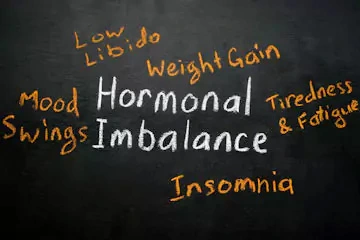In today’s fast-paced world, many people find themselves overwhelmed by stress, anxiety, and emotional challenges. While traditional treatments like therapy and medication can be helpful, mindfulness and meditation have emerged as powerful tools in managing mental health. These practices have been shown to reduce symptoms of anxiety, depression, and stress while promoting overall well-being. In this blog post, we’ll explore the science behind mindfulness and meditation and how these practices can significantly improve mental health.
1. Understanding Mindfulness and Meditation
Before diving into the mental health benefits, it’s important to define mindfulness and meditation:
- Mindfulness: Mindfulness is the practice of paying attention to the present moment, non-judgmentally. It involves observing your thoughts, feelings, bodily sensations, and the surrounding environment without becoming attached or reactive.
- Meditation: Meditation is a focused practice designed to calm the mind and enhance concentration. While there are many types of meditation (e.g., guided meditation, loving-kindness meditation, body scan), all forms share the goal of fostering inner peace and clarity.
Both mindfulness and meditation cultivate awareness and help you become more attuned to your thoughts and emotions, which is why they are so effective in improving mental health.
2. Reducing Anxiety and Stress
One of the most well-researched benefits of mindfulness and meditation is their ability to reduce anxiety and stress. Studies have shown that these practices activate the parasympathetic nervous system, which promotes relaxation and counteracts the “fight or flight” response often triggered by stress.
- Mindfulness: By practicing mindfulness, you can interrupt the cycle of anxious thoughts and focus on the present moment rather than worrying about the past or future. This can reduce feelings of overwhelm and anxiety.
- Meditation: Meditation helps regulate the nervous system and lowers cortisol levels (the stress hormone), which reduces the physiological effects of stress. Regular meditation can rewire the brain to respond to stress in a more balanced and calm manner.
3. Managing Depression Through Mindfulness
Mindfulness-based practices have also been shown to be effective in reducing symptoms of depression. Mindfulness encourages individuals to observe negative thought patterns without judgment or attachment, preventing these thoughts from spiraling into deeper feelings of sadness or hopelessness.
- Breaking the Cycle of Negative Thinking: In depression, negative thought loops can become all-consuming. Mindfulness and meditation help create a mental space where individuals can recognize these patterns and gently guide their attention away from them.
- Mindfulness-Based Cognitive Therapy (MBCT): MBCT is a structured program combining mindfulness practices with cognitive therapy to break the cycle of depression. It has been found to be as effective as antidepressants in preventing relapse in individuals who have experienced multiple episodes of depression.
4. Enhancing Emotional Regulation
Mindfulness and meditation play a key role in emotional regulation. These practices teach you to pause, observe your feelings, and choose your responses, rather than reacting impulsively or emotionally. This can be especially beneficial for people struggling with mood swings, irritability, or difficulty managing strong emotions.
- Mindfulness: Regular mindfulness practice helps to increase awareness of your emotional triggers, allowing you to respond more thoughtfully rather than reacting out of habit or impulse.
- Meditation: Meditation fosters greater emotional resilience by helping you build a sense of inner peace and equanimity, making it easier to cope with challenging emotions.
5. Improving Self-Awareness and Self-Compassion
Mindfulness and meditation also promote greater self-awareness and self-compassion, two key factors in improving mental health. By developing a more objective view of your thoughts and feelings, you can better understand your mental and emotional needs.
- Self-Awareness: Mindfulness helps you become more aware of your internal landscape, such as your thoughts, bodily sensations, and emotions. This increased awareness can give your insight into your mental health and help you identify patterns that may be contributing to stress or anxiety.
- Self-Compassion: Through mindfulness practices, you learn to treat yourself with kindness, especially when facing difficult emotions. This practice of self-compassion has been shown to reduce symptoms of depression and anxiety and foster a more positive relationship with oneself.
6. Enhancing Focus and Cognitive Function
In addition to emotional benefits, mindfulness and meditation have also been shown to improve cognitive function, such as focus, memory, and attention. These benefits can help people with mental health challenges stay grounded and engaged in daily tasks, reducing feelings of mental fog or difficulty concentrating.
- Improved Attention: Meditation, particularly mindfulness meditation, improves the ability to concentrate and stay focused, even in the face of distractions or overwhelming emotions.
- Neuroplasticity: Regular meditation has been linked to changes in the brain, enhancing areas responsible for attention, emotional regulation, and decision-making. These brain changes may contribute to improved cognitive function and a greater ability to manage stress.
Example: A person struggling with ADHD may find that meditation helps improve their ability to focus and reduce impulsivity, enhancing their overall mental clarity and productivity.
7. Promoting Better Sleep
Mindfulness and meditation are powerful tools for improving sleep, which is crucial for maintaining mental health. Practices like meditation help activate the relaxation response, making it easier to fall asleep and stay asleep.
- Relaxation and Sleep: Meditation techniques such as progressive muscle relaxation or guided sleep meditations help ease the mind and body into a restful state.
- Mindfulness for Insomnia: Mindfulness helps people with insomnia break the cycle of anxiety around sleep, allowing them to let go of worries and approach bedtime with a more peaceful mindset.
Example: Someone who struggles with insomnia due to anxiety may use mindfulness techniques before bed to calm their racing thoughts and prepare their body for restful sleep.
Mindfulness and meditation offer a range of powerful benefits for mental health, from reducing stress and anxiety to improving emotional regulation, self-awareness, and sleep. These practices empower individuals to take an active role in their mental well-being by fostering a deeper connection to the present moment and cultivating compassion for themselves. Whether used alone or in combination with other therapeutic approaches, mindfulness and meditation can be transformative tools in the pursuit of better mental health and emotional balance.




